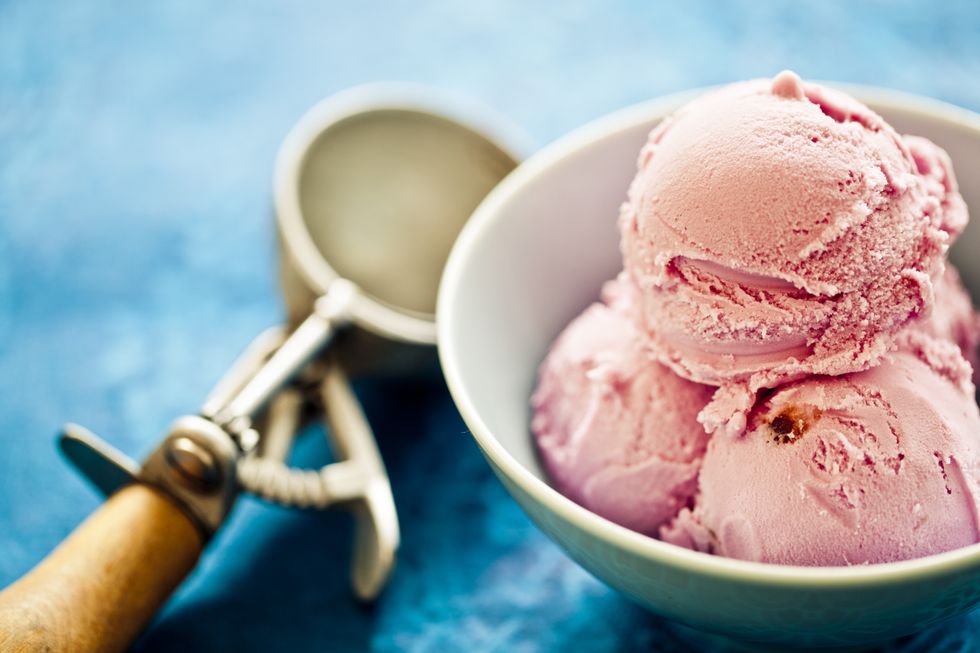How we live everyday life affects not just our health today, but twenty, thirty, and forty years into the future. “Experts estimate that about 25% of the variation in human lifespan is determined by genetics. But the rest can be attributed in large part to how we take care of our bodies,” according to Harvard Health. “Most of us don’t want to just live longer — we want to live longer while enjoying a good quality of life. There are simple things you can do to be your healthiest, most active, most productive self while living longer.” There are a few very specific lifestyle factors that make a significant difference in lifespan, healthspan, and wellness. Here’s what the experts say.
RELATED: 8 Ways to Slow Biological Aging by 6 Years.
Incorporate Movement Into Daily Life
Shutterstock
Movement is key for health and longevity: The longest lived people in the world don’t necessarily hit the gym every day, but are active throughout the day. “People in blue zones, they’re not thinking about their health or a diet or an exercise program. They’re not doing anything except living their lives,” Buettner told NPR. “Plant a garden in your backyard. A garden nudges you to weed and water and harvest almost every day.” Another tip is to spend more time on the floor. “I sat for two days with a 104-year-old woman who got up and down off the floor 30 times,” Buettner says. “It makes for better balance and flexibility and probably healthier backs and fewer falls.”
Try Intermittent Fasting

Intermittent fasting (especially when you stop eating earlier in the day) has significant health benefits. “Clinical data shows that intermittent fasting — an eating pattern where you cycle between periods of eating and fasting — can improve insulin stability, cholesterol levels, blood pressure, mental alertness and energy,” says longevity expert Sergey Young via CNBC. “To ease into the “eat early, and less often” diet, I started with a 16:8-hour intermittent fasting regimen. This is where you eat all of your meals within one eight-hour period — for instance, between 8 a.m. and 4 p.m., or between 10 a.m. and 6 p.m.”
Prioritize Sleep

Slide 3: Prioritize Sleep Sleep impacts every aspect of health, including longevity. “Sleep is restorative,” says cardiologist and sleep expert Virend Somers, MD, PhD, at the Mayo Clinic. “During sleep, your brain and body perform many critical tasks important for overall health… Sleep has multiple functions on every biological level.”
Maintain a Healthy Weight
Shutterstock
Don’t let the pounds creep on over the years. “A Johns Hopkins-led study of 6,200 men and women over eight years found that those who adopted four smart behaviors reduced the chance of death from all causes within that time frame by an astounding 80 percent,” says Johns Hopkins Health. “The healthiest people in the study maintained a body mass index (BMI)—a ratio of height to weight that measures body mass—of less than 25.”
Watch Your Sugar Intake

Added sugars are terrible for your health, experts warn, and can shorten your lifespan. “Sure, in the right doses, sugars from fruits, vegetables and even grains play an important role in a healthy diet,” Young says. “I eat fruits and treat myself to some ice cream once in a while. But make no mistake: Excess sugar in all its forms is poison. To lessen my intake, I avoid processed foods and sugary drinks.”
Eat Like the Okinawans

Do as the Okinawans do: Eat plenty of real, whole foods and stop eating when you’re 80% full. “It’s a remarkably healthy diet because it adheres to the fundamental theme of healthy eating—it’s real food, mostly plants in a sensible, balanced assembly,” David Katz, a preventive medicine specialist and past president of the American College of Lifestyle Medicine, tells National Geographic. “Optimal nutrition keeps everything working well so that you keep working well. By putting good fuel in the tank, you’re optimizing the engine and you’re essentially detoxing every day.”
Avoid Too Much Alcohol and Smoking
Shutterstock
Drinking too much alcohol and smoking are terrible for health and longevity. “One of the biggest toxic habits is excessive use of alcohol,” Young warns. “Studies show that high and regular use can contribute to damage to your liver and pancreas, high blood pressure and the immune system. Lastly, I don’t smoke — but for anyone who does, I recommend quitting as soon as possible. According to the CDC, cigarette smoking is behind 480,000 deaths per year in the U.S.”





